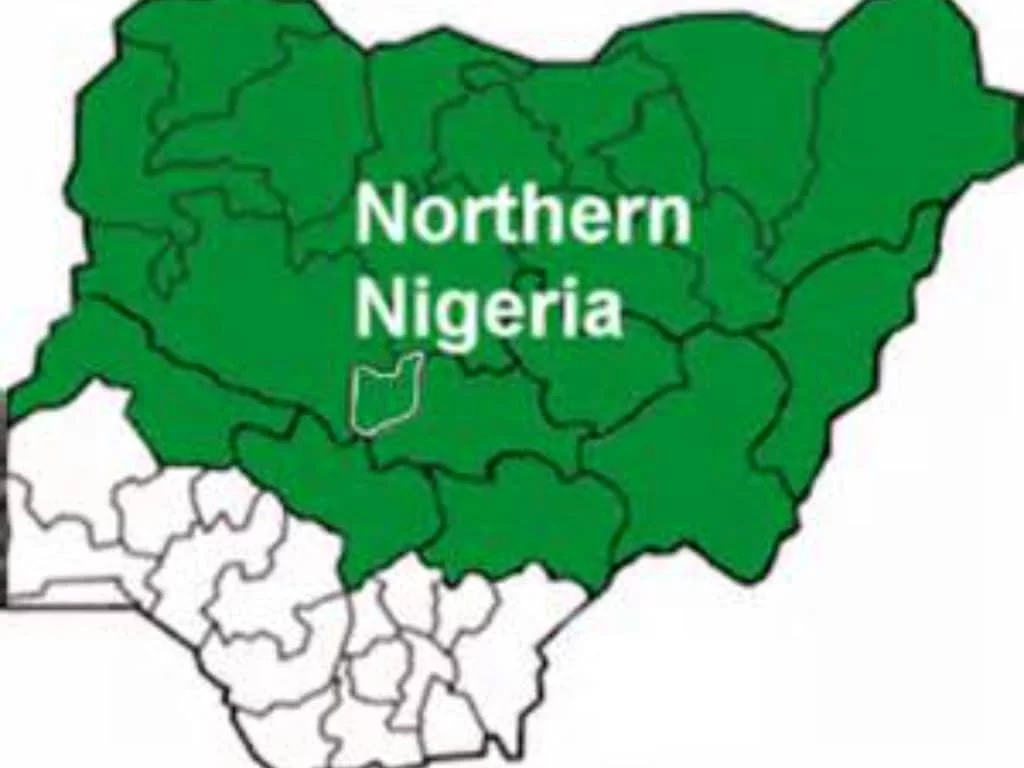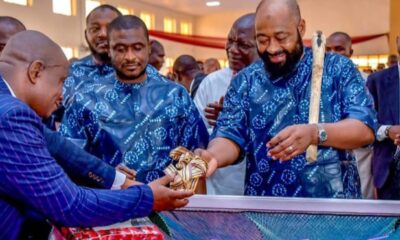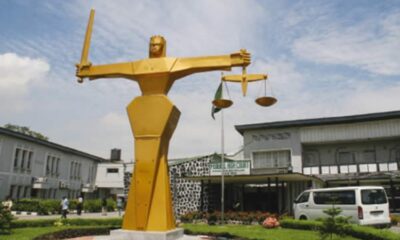Opinion
Situating the northern conundrum for pragmatic steps forward, By Shettima Ali

Since the current democratic dispensation started in 1999, the North seems to have been thrown into unmet expectations of dividends of democracy, that is, improvements in social well-being and economic development and growth.
Largely, the North continuously witnessed social and economic downturns, evidenced by devastating insecurity and the collapse in social development, and economic fortunes and infrastructure. The level of poverty and the near-total collapse of the education sector became the order of the day; the economy became merely rent-seeking even in the traditional northern stronghold of the agricultural sector and commerce which were held down by increasing insecurity.
The manufacturing sectors which held a promising burst in the sixties and seventies slid downwards since the advent of the Structural Adjustment Programme (SAP); some would say, since the advent of the oil boom when Nigeria’s problem became that of how to spend money, and the lust for imported goods and services became the order of the day. Notwithstanding, the participation of the North in the democratic political experimentation/dispensation was robust, and at least the leadership was in the hands of Northerners for a considerable period. Nevertheless, the period created despondency of northerners in general and governance characterized by the squandering of resources, rather than an increase in productive economic activities or improvement in the general well-being of the people. The degenerative situation has become heightened especially under the current administration whose policies, actions and body language appear much to the detriment of the social and economic advancement of the country, especially the North, but significantly due to an underlying socioeconomic illness eating into the fabric of the northern prosperity and well-being for quite some time. Therefore, it is not surprising that the North is thrown into a rise in the level of lamentations, albeit momentous, about bad governance, about being shortchanged, about lost opportunities, and its leadership brand.
READ ALSO :SABMF to host roundtable on youth development in Northern Nigeria
I have read several of the writings and seen many verbal expressions of angst in social media, many of which are from quite informed elites and respected people about the existential conundrum of the North. One must sympathise with many of the positions created by the depressing situations we wake up to daily. The reality that is unveiled in the North daily is that of the desperate feeling of the appalling level of a crumbling economy and increasing level of poverty; of disappearing social amenities including healthcare and education, and boundless insecurity. Apropos the observations, there is a need to examine the northern situation for clarity of issues for the way forward as some of the perceptions about the causes of these unsavoury developments are not quite situated. That is, I am firmly of the opinion that we should end the verbose exercise of lamentations, and seek a strategic, planned way forward, which should be the immediate and sacrosanct position for the North.
Quite several issues continue to surface in the opinions of many as the leading causes of the dwindling fortunes of the North. While I believe wandering into a conversation about the strengths or otherwise of many of the issues is perhaps not worth the time, we must speak on some of those issues which are critical to our thoughts about the way forward for the North. Of critical importance is the issue of the failure of leadership, which criticism has now taken to regrettable disrespect and lambasting of all classes of leaders, to the extent some express that there is a leadership vacuum in the North. Did all of our leaders fail to protect the interest of the North in managing the affairs of the country or even the states? Perhaps in the recent democratic dispensation, but, unquestionably our founding leaders have done significantly well. The military governors in the earlier military government dispensation also appreciatively did well in their social (general well-being, healthcare, education and even security) and developmental strides (infrastructure, industry, agriculture and even tourism). The dominant governance principle that guided the early leaders was no doubt service to the region within a competitive, yet united country. No doubt over the years there were many errors in long-term visioning or lack of it and excessive spirit of sacrifice by the North for the sake of a united Nigeria which turned out detrimental in many respects to the North. The fact that the North remained conceding in many ways to ensure that the country remained united and one is unquestionable, even as the other parts of the country saw that as a needs-based concession, hanging on to a share of southern resources.
Among the many lamentations that surfaced in a social media post (really it has been around for a long time) is the low featuring of northerners in the most lucrative jobs (oil and gas industry, multinational companies, telecommunication and banks) in the country. Getting into these jobs no doubt demands a sound educational background and to some extent exposure to those industries. However, we must remember that these industries are mainly domiciled in the South, particularly with headquarters in Lagos. We mustn’t forget that the Southerners had a head start in both education and access to these industries. Also, South West (Yoruba) had a head start in getting employed especially in the oil and gas sector, dating to its early days, and especially during the civil war when most Igbos left and then, only a few northerners if any, who had the required expertise to join. Similarly, most of those multinational oil companies and Consultancy firms (examples of which as mentioned in a recent social media post) mainly employ on a referral basis or even get accepted into their trainee programmes even as you have to be undoubtedly qualified. The factor of who you know, or your connections to people in the industry or organisations etc. plays a significant part in availing people of jobs in such places. Even in later years, and to date, such a referral system plays a big role that, for northerners, it is almost like a camel passing through the needle’s eye to get employed in these sectors, even for those who have acquired the requisite qualifications.
My grouse with the northern leadership is why they couldn’t attract or establish strong industries in the North based on the factor endowments of the region to pave the way for well-trained northerners to dominate and contribute to the capital flow to the region. The founding fathers had a Development plan that would’ve placed the North on those footings. For our later generation of leaders, we can ask how well they fared in strengthening the NNDC and similar northern institutions as investment drivers in industrializing the North. How did we fail to take advantage of the banking consolidation exercise of the 80s, and for example, allowing the taking over for pittance of the mighty Bank of the North? Did we miss an opportunity to actively participate in the acquisition of shares in industry through the Indigenisation exercise of the seventies when most of the shares allocated to the Northern states remained unsubscribed and hence sold to the Southerners? Who do we blame for accepting the headlong implementation of the Structural Adjustment Programme which brought about the privatization of public institutions when it was glaring that access to finance or the appropriateness of the financing available for most northerners was inadequate? How did we end up allowing the crippling of all the budding manufacturing industries in the North during SAP? Could the northern leadership have rejected that reform programme of a military regime to any effect? I doubt, even as the leading dramatis personae, the head of that military government was a northerner. Certainly, these are issues a leader like Sir Ahmadu Bello would have critically assessed and decisively acted in the best interest of the North. Indeed, these are pertinent questions that should lead us to define the leadership vision and muscle required to redirect the North to development and growth. It is pertinent to also point out, especially for the attention of northern leaders, political, spiritual and traditional, especially those currently in position and others aspiring that it is lacking in sense of responsibility to tell stories of how the North could not fare better in regimes they served in, blaming others or even the northerners who looked up to the leaders to protect their interests. Our leaders need much introspection on what is required of them in government and the commitment to serve and protect the interest of the North, even as we commit ourselves as a competitive part of a united Nigeria.
Another area of northern consternation in recent conversations is population. As surmised in the above-referenced recent post, it is said that the “geometric production of children we do not need” is the problem of our lack of development. It is quite intriguing that the North is hell-bent on ensuring that population counts in the federal revenue allocation formula, and cherishes its population size as a winning factor in all elections while it still sees the population that gives us those advantages as “we have no need of.” Just by the way, I doubt the South is any better in self-restraint in having babies or marrying, or copulating with multiple women and having babies. The population growth rate is merely a few figures apart between the regions. The various head counts and regional claims attest to that. At a point, we were said to be counting goats and cows as people in the North during the population census which of course was not true. What we should be looking at is, what did we do with the allocations we received based on our population size. Countries like China, India and even Pakistan and Indonesia are reaping great benefits from their population in which education and skills development they invest heavily. In any case, did the North ever contemplate any measure to control its population size even by way of an enlightenment campaign about the desirability or otherwise of untamed population growth? Have we taken advantage of the Almajiri schools project started by former President Goodluck Johnathan or improved on it to tackle the disturbing out-of-school children phenomenon in the North? Not that I know of. We also often hear that northerners are lazy. Really? Are northerners lazy? Hardly. A typical northerner is only constrained by a lack of financial resources in creating and taking advantage of opportunities to be productive. It is a fact that even those who are most deprived of access to resources find means of livelihood in menial jobs all over the country, and much of the grains and vegetables produced in the North are by these “lazy” populations that we do not need.
Shouldn’t the North advance the cause of access to finance through empowering the youths to have guarantees and asset backing to be able to borrow from the banks to set up businesses as an economic revamping issue of concern for the North, for example? As it is, the North doesn’t even think of the underlying consequence on the Northerners of the large financial bailouts given to Nigerian banks some years back (the CBN spent over N3 trillion in 8 years, 2010- 2017) to rescue them from their reckless lending, and hence creating huge bad and nonperforming loans, over 90% of which were given to businesses owned by the southerners. The CBN only recently confirmed that significant portions of the bailouts were written-off; also the huge nonperforming assets taken over by AMCON (N1.725 trillion as of Dec. 2010), were only partially recovered. While technically the moves by the CBN and AMCON are to stabilize the financial sector in the country, no doubt a motivation for moral hazard was created, most of the banks recklessly creating bad assets including substantial insider loans expecting a bailout from the CBN. Substantially, therefore, the bailout simply pumped financial resources to the financial institutions owned by southerners, boosting the financial capacity there.
Why we have a large number of poor families abandoning their parental responsibilities is not an issue of need for the children, but because of the dire consequence of the lack of planning and implementing people-oriented programmes by the government, and a seemingly benign promotion of population size as a political tool over the years than the appropriate dedication to turn population into an asset for development. We must understand that the crisis of want, aka poverty, that is engulfing the North is pronounced by the prolonged insecurity covering the area: from communal/ethnic/religious clashes to herdsmen/farmers clashes, and Boko Haram and, banditry and kidnapping all happening continuously within 30 years or so. Lest we forget, and questioning the theory that it was the illiterate children that were the root cause of the insecurity in the North, evidence abounds that principally, the crises in the society, including the Boko Haram saga and as it is unravelling, even the banditry and kidnappings, are brewed by the political class and the educated elites and some community leaders, using the poor children as foot soldiers of sort. Without a doubt, the insecurity in the North led to significant drawbacks on the capacity of the people to engage in production and capital formation, or the region attracting rooted sustainable investment in production, foreign or domestic despite the abundance of natural resources, thus perpetuating the unemployment level and feeding the cycle of insecurity in the region. With the benefits of hindsight, before these challenges mentioned above, the North was well on its way to being on a sustainable growth path. Alas, the devastating impact of the industry-crippling SAP and its consequent economic policies that promoted a rentier economy badly affected the North creating a fertilizing environment for a political class and cohorts that took pride in self-aggrandisement rather than service to the people.
Having said all that just by way of situating the northern sociopolitical and development conundrum, what is the way forward for a better and developed North? Unquestionably, many conferences, roundtables, think-tank brainstorming and discussions have taken place in the last couple of years on the path to development in the North with concrete recommendations. Hence, delving into details will be like an attempt at reinventing the wheel and in a brief discussion as this. I would, therefore, simply highlight the critical focal points which by no means are exhaustive, that should be prioritized and given all the commitment of both the public sector and the private citizens to realise them. These are:
1. Peace, Security and Unity:
• Ensuring the existence of peace and security is a fundamental task that must be achieved for any serious development to take place in the North.
• The necessary steps to achieve that include creating a permanent security presence in the ungoverned spaces; local policing; increased intelligence gathering and increase in the security consciousness of the people;
• There is definitely the need for a major strategic shift from the security apparatchiks in handling the insecurity. There are identified issues of manpower, equipment, battlefront strategies which have been discussed widely at many critical for a, including that of NIPSS which must be carefully assessed for implementation.
• To overcome ethnic and religious divides, effort must be made to inculcate unity in our youths at the early stage of life. All northern states should have boarding unity schools that should take in students from all the northern states as the case in the case of Katsina College, Government College Keffi, Barewa College, Queen Elizabeth College and the like and admission should be strictly on merit, reminiscent of colonial to early post-colonial northern Nigeria.
• Our education system should emphasise moral education, offering qualitative tutoring on righteous values and hard work. The education should be life impacting, promoting the culture of unity in diversity, underscoring sociocultural and religious respect and understanding among the youths and the people at large.
• Building trust and ensuring equity and fairness in access to opportunities and government appointments where applicable; supporting the best northern candidate in cases of selecting for key appointments/positions in federal, state or local government.
• Create a dispassionate central consultative committee of northerners whose membership should come from all the major northern-interest fora. A member should command an indisputable acceptance in his state/locality as a respected leader (elder), who has absolute integrity and commitment to Northern unity and progress.
• Members should also have the capacity to make firm decisions in the best interest of the North. The Forum should lay acceptable guidelines for decision processes, including in the spread of public offices among citizens and spreading of developmental projects equitably within the states and nationally in the best interest of the North.
• The focus of our leaders should be based on the principles of equity, fairness, and the promotion of excellence and a collective sense of oneness; excessive entitlement and gerrymandering for political advantage should be the least on the hierarchy of our concerns.
2. Curtailing Youth Restiveness:
• Inclusiveness in sociopolitical decision considerations (Youth organisations must be part of all socio-cultural, political and economic northern-interest fora and have substantive representation in the leadership and decision-making structure of such fora).
• The Youth organisations should have the liberty to select their representative(s).
• Equity in access to opportunities (there must be transparent, merit-based access to employment opportunities, appointments and training etc.).
• Create a transparent and competitive system for identifying talents and promoting them to actualize their dreams.
3. Education /skills development
• Institute a regime of compulsory primary education for all children; create avenues for adult education and continual education (especially for girls), who might have dropped out of school for any reason.
• There is a need to declare a state of emergency on Education in the North and comprehensively review the curriculum and system to ensure a sound blend of humanity and the sciences, functional technical skills, religious subjects, character-forming subjects, and quality.
• Commit to funding the reviewed system adequately ensuring the provision of facilities and infrastructure as well as ensuring motivating remuneration to teachers. The instituting of a teaching volunteering programme to engage qualified retired teachers and a drive for community involvement in funding education are veritable tools to consider to manage the pressure of financing the emergency education revamping programme.
• Reintroduction of Teachers Training colleges and Technical Colleges.
4. Agriculture
• Modernization through the introduction of appropriate and alternative technologies;
• Shifting from subsistence agriculture to commercialization (through cooperative and similar groupings), emphasizing collective responsibility for results.
• Commit to the immediate implementation of the ranching programme as the alternative to transhumance in animal husbandry; adopting progressive animal fodder/pasture growing techniques, and collaborating with research institutions like NAPRI that has a verifiable knowledge in that respect.
• Commit to agriculture value adding for deep-rooted wealth creation in areas the North has comparative advantage like in meat processing, dairy products; vegetables and fruits packaging; grains processing and milling; cotton ginning; etc. and beverages and spices processing (sugar, tea, coffee, chilli pepper, ginger and others).
• Construct sustainable earthen rainwater harvesting dams and artificial lakes across the zone for flood controls and irrigation schemes, especially in the areas facing desert encroachment and extended periods of dry conditions but often enjoying bursts of heavy downpours of rain and hence susceptible to destructive flooding during the rainy seasons.
5. Industrialisation
As the significant market for the manufactured products of the southern-based industries are really low technology products, given an improved security and power supply, nothing will stop the North from coming up with its competitive manufacturing and value-addition industries in the like as it did in the 60s and 70s. It is also high time the North created industries and jobs for the now huge unemployed youths, many of whom are university and polytechnic graduates in high-end jobs to attract cash inflows into the region. Some specific suggestions for the way forward are:
• Follow a policy of at least one major manufacturing business per state based on production factor endowment and create industrial hubs in each state;
• Develop a scheme for the revamping of the many now challenged private manufacturing businesses while attracting new ones through economic incentives programmes.
• Ensure ease of doing business while linking the entire North to take advantage of the vast market potential of the region for manufactured products and processed foods.
• Create a robust private-public engagement to motivate the private sector investment in manufacturing and value-adding processing industries across the North, targeting both the domestic and export markets.
• Explore the formalization of the export trade routes taking advantage of existing trade links with the neighbouring countries, for formal and structured trade transactions and payments, to open up the markets for manufactured and processed goods from northern Nigeria and foreign exchange inflows.
6. Energy Development
• Full advantage should be taken by the North of the deregulation of the energy sector to use all energy sources, hydro, solar, thermal and otherwise to ensure an adequate supply of energy to support industries as well as general requirements.
• Attract private sector investment with adequate incentives for a win-win development of the sector for investors, businesses, the government and the public.
• The North should use all its political influences to ensure that the AKK gas pipeline project planned to reach Kano is completed and ask for the review of the project to extend to other parts of the North to power the industrialisation objective.
7. Mining
• Take full advantage of solid minerals by appropriate licensing and granting of leasehold titles and administrative control and supervision of all mining activities for the benefit of the state and the people.
• Ensure the participation of citizens in all mining activities in the state through adequate training and skills development of the people in the solid minerals value-adding activities.
• Invest in solid minerals value-adding industries like tiles from marble and granite, gold processing and refining etc.
8. Entrepreneurship
• Increase the effort in entrepreneurial development programmes;
• Create empowerment programmes to give access to commercial financing to local entrepreneurs to enhance their capacity to explore their entrepreneurial creativity to the fullest.
• Open as many skills development centres in all the states;
• Where it is cost-effective, State skills development centres can specialize, opening the services to youths from all the other northern states, to promote unity and comraderies among the programme participants and open up the potential for promoting partnerships in business startups etc.
• Efforts should be made to strengthen international business relationships through support for membership of international business relationships and regional and specific country Chambers of Commerce to facilitate franchise and patent relationships with major foreign manufacturing companies (automobiles, electrical and electronics, solar technology, agricultural machinery, pharmaceuticals etc. and for exports)
• Borrow/encourage/promote the Igbo entrepreneurship mentoring system for sustainable wealth creation and development to reduce idleness among the youths.
9. Finance and Banking
• The need for a northern-based/ owned megabank(s) cannot be overemphasized, to increase the access to finance to northern businesses. It is necessary for increased private investment in this sector.
• The NNDC should take up the challenge immediately to come up with a financing vehicle and structure for a private/public partnership to acquire any of the banks under the AMCON administration to be headquartered in the North.
• The trending policy currently in banks that limits the taking of landed property as security for loans to landed properties located only in Abuja if in the North is a clear barrier to access to finance to most northerners, whose deposits and transactions contribute substantially to the success of those banks. Measures must be taken to arrest this situation.
• Similarly, the lack of access to employment in the financial sector for northerners needs to be addressed by the states; those who want our business should employ our citizens.
• To widen the access to borrowing for increased economic activities, and indeed for more patronage of banking services given the dominant religious backgrounds in the North, there is the need to have more non-interest banks.
10. Air/Road and Rail infrastructure
• The development of a network of interstate standard gauge rail and road networks cannot be overemphasised and can be realised through private-public partnerships. The northern states can float jointly owned rail network development Holding Company with private (both local and foreign investors) and public ownership to accomplish the rail networking as a self-paying commercial project to promote interconnectivity within the North.
• Thus, the states are to take advantage of the declassification of railways from the exclusive list to the concurrent list to collectively seek private investors to develop an intra-regional standard gauge rail network linking all the state capitals.
• Upgrade the Port Harcourt to Maiduguri rail rehabilitation project to standard gauge.
• Complete rehabilitation of the road network in the region is urgently needed.
The above suggestions as I earlier said are not exhaustive, and the North needs to create an avenue for brainstorming to arrive at the best sustainable plan, achievable in the shortest possible time.
A last word which is by no means of any less critical importance is the role of our legislators in ensuring the interest of the North is protected. It is quite worrisome that often our legislators especially at the Federal level are caught unawares or apparently unprepared when bills with underlying negative consequences for the well-being of the North and maintaining the structural balance of the country are introduced. The North is still being haunted by the spectre of the On-shore off-shore oil dichotomy bill, the saga of which ended in a clear disadvantage to the North. We are now faced with a Tax Bill which is equally a threat to further eroding the equity and justice standing of the states enshrined in the Nigerian Constitution. It is of fundamental importance for our legislators to fully equip themselves with research and brainstorming support offices monitoring, forecasting, simulating and analysing the sociopolitical environment to enable them to remain alert and proactive to protect the interest of the North at all time. Establishing a strong northern caucus transcending political party affiliations is absolutely necessary for maintaining the important balancing acts as intended by the provisions of the Constitution needed to keep Nigeria one.
Shettima A. Ali, Ph.D.
[email protected]





















